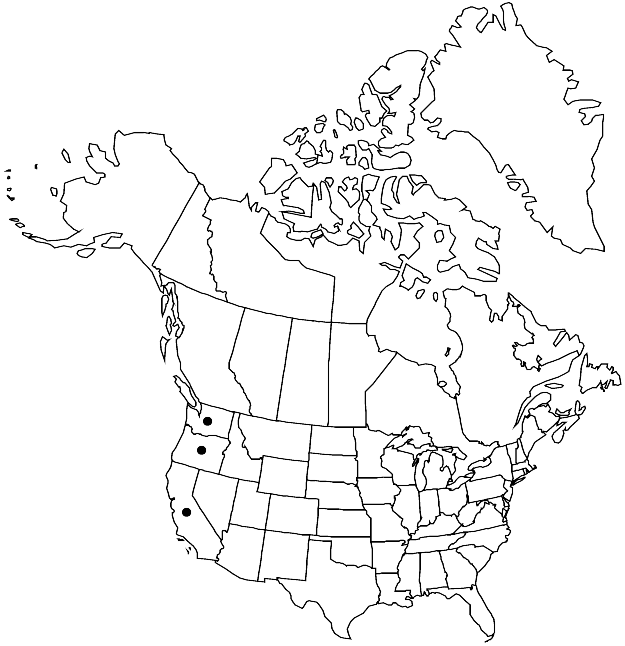Difference between revisions of "Orthotrichum euryphyllum"
Bot. Centralbl. 44: 417. 1890.
FNA>Volume Importer |
(No difference)
|
Revision as of 04:23, 27 July 2019
Plants to 3 cm, red-brown to black. Stem leaves erect-appressed when dry, oblong-lanceolate to ovate-lanceolate, 2.5–4 mm; margins recurved-revolute to near apex, entire or sometimes irregularly serrulate near apex; apex obtuse, cucullate; basal laminal cells short-rectangular, walls thin, somewhat nodose; distal cells to 20 µm, 1-stratose, smooth or papillae 1 or 2 per cell, conic, low. Specialized asexual reproduction absent. Sexual condition gonioautoicous. Seta to 1.5 mm. Capsule immersed, oblong to oblong-ovate, 1.5–2 mm, strongly 8-ribbed entire length; stomata immersed; peristome double; prostome sometimes present, low; exostome teeth 8 splitting to 16, erect, loosely reflexed when old, densely papillose-striate; endostome segments (8–)16, well developed, of 1 or 2 rows of cells, finely papillose. Calyptra conic-oblong, papillose, naked. Spores to 15 µm.
Habitat: Calcareous springs in Artemisia scrub
Elevation: low to moderate elevations (0-500 m)
Distribution

Calif., Oreg., Wash.
Discussion
Plants of Orthotrichum euryphyllum are compact and red-brown with cucullate, entire leaf apices and distal laminal cells approaching 20 µm wide. In comparison, plants of O. rivulare are loose and blackish with flat, dentate leaf apices and distal laminal cells rarely wider than 13 µm. The leaf apices of O. euryphyllum are reflexed when dry; the stomata are found in the proximal portion of the capsule, covered by subsidiary cells.
Selected References
None.